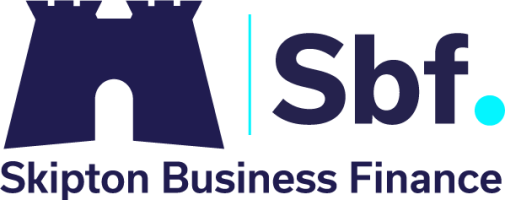This week is International Fraud Awareness Week and, as it’s a matter Skipton Business Finance takes very seriously, we wanted to put together our guide for keeping your business safe from scams and fraud.
In a broad sense, fraud is when actions are taken to deceive for financial or personal gain. There are many types of fraud, but those that pose the most risk for businesses include occupational fraud, impersonation fraud, phishing, investment fraud and invoice fraud.
Types of fraud that your business could be at risk of
With a number of scams circulating all year round, it will benefit your business to be aware of the ones that could affect you. The below list includes some of the common scams that affect businesses, however types of fraud are not limited to this list. You can find out more about the different types of fraud on the Action Fraud website.
Occupational Fraud
Occupational Fraud refers to an instance where an employee or manager deceives their own organisation. This could be done by stealing or misusing company property (known as asset misappropriations), embezzlement, cheating taxes, and fraudulent financial reporting.
Employees at any level could be capable of fraud and it is important to have the correct procedures and policies in place to prevent this.
Impersonation Fraud
This occurs when someone claims to be from (or impersonates) an official organisation such as a bank or financial provider, to trick the victim into sending money or releasing financial information. The fraudster may call or email the victim with a sense of urgency, aiming to pressure them to send money fast. An example would be an individual impersonating a bank and telling the victim that their account isn’t safe and that they should move their funds to a new account. This is where the fraudster would secure the money from the victim.
Phishing
Phishing is similar to Impersonation Fraud in that it involves someone sending an email or text from a seemingly reputable company and asking for details, such as bank account details and passwords.
A recent example of this is where a message appears to come from Royal Mail and suggests there is an outstanding fee to pay for a parcel to be delivered. As Royal Mail deliveries are a common occurrence for many households and businesses, this can be a concerning message. Individuals may feel pressured to pay the amount, while at the same time giving their card details for the payment.
Investment Fraud
Investment scams occur when someone is tricked into investing money into something, which turns out to be fake. This could be the offer of an investment into business plans, stocks and schemes that seem appealing and claims to provide a sizeable return. This is an extremely dangerous scam as it often involves a large sum of money. Those most vulnerable to this scam are those that are struggling financially, as they may be desperate for quick access to money.
Invoice Fraud
Invoice Fraud involves someone informing your business that a supplier’s payment details have changed and giving you new details in which to pay your invoices to. The fraudster could be impersonating a genuine supplier or even a member of your own business. For busy and stressed businesses, the temptation could be to rush into this and quickly pay it off, for fear of losing out of productivity if not paid in a timely manner.
This is a particularly prominent fraud within B2B businesses, where goods and services are paid for on invoice terms.
How can you protect yourself and your business from fraud?
It is the responsibility of everyone in your business to be vigilant about fraud all year round. Having knowledge about the types of scams out there will help, but there is more that can be done to protect yourself and your organisation from fraud:
Be aware
It is important to ensure that you are aware of the types of scams that are circulating to ensure that, if one comes your way, you know how to identify it.
Often these scams can look realistic, but there are some key pointers below which are useful to look out for when differentiating a scam from a legitimate communication.
Be vigilant
- Look out for spelling mistakes, lack on punctuation and misuse of capital letters on organisation names.
- Take a look at the email address – does it look legitimate?
- If the communication includes a link that seems untrustworthy, do not open it. If you do open a link and it directs you to a page which asks you to fill in personal details, please do not do this – a legitimate organisation will not ask for your confidential details online.
- If you receive a message that appears to be from your bank or lender, but you are unsure on the legitimacy, please contact them first to ensure that you are dealing with the right person.
- Remember that your bank or lender will never ask you to disclose any confidential information online or via email.
- Please be careful with the information that you share online. If you are in any doubt that the source of the communication is untrustworthy, do not disclose any private or confidential information regarding both yourself and your business.
Be smart
It is important to remember that a bank or lender will never ask for personal details online. If you are asked for these details online, do not disclose them.
Be patient – scammers will often try to put pressure on you by mentioning a tight deadline or payment date, whilst also mentioning the disadvantages if you do not meet this date. Take your time and do not feel obliged to rush into responding to these communications. If you believe the communication to be of a fraudulent nature, do not respond. It is also important to note that, if it seems too good to be true, it probably is. If you are in doubt of legitimacy, make sure you second-guess anything you see.
If you feel that you may have fallen victim to one of these scams, it is important that you report this to Action Fraud immediately.







